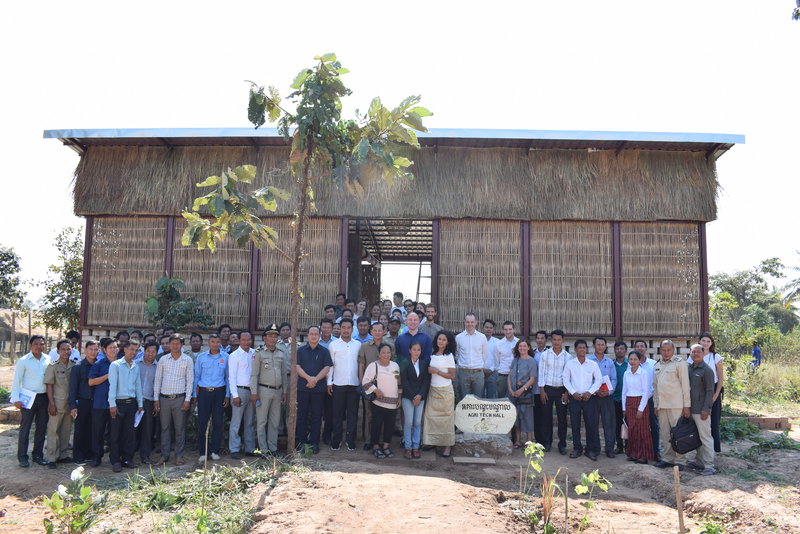
Guest Post by ECHOcommunity member: Muneezay Jaffery
This is part 3 of a series describing how one network organization is progressing with development of training facilities and curriculum.
On 20 December 2018, we organised a launch ceremony by inviting village and commune leaders, representatives from the provincial government and NGO partners that enabled us to complete the work on time. This truly recognizes the space as a community-led project, while Green Shoots has constructed this building there is fluidity in its function, use and purpose. For now, the purpose is agriculture training, but this can develop into enterprise hub for agribusinesses or it can become a community-learning centre.

Photo Credit: Muneezay Jaffery
The team are now doing village outreach work with banners and hand-outs at the ready. So far we have visited nearly 10 villages in the vicinity informing residents about the new “school” what courses we offer, how the courses are structured. We plan to offer three main courses for the first Quarter of 2019. This includes: Horticulture Training/ Chicken Raising and Earthblock making. A few learning outcomes we want to achieve from the lessons are:
- Students understand the holistic nature of the agritech Centre
- An improved grasp of theoretical concepts around: Climate Change/ The role of smallholder farming and role of rural communities in food security
- Ultimately we want them to not only see the bigger picture but also realise they play a key part in this.
- We want to instil ownership and responsibility of the site into the students.
There are challenges at hand- are people interested? What sets us apart? How can we ensure regular attendance? Our approach is to pilot out our timetable on rotation. This offers students flexibility in attendance by gaining credits as and when they finish a course.
Simultaneously we are establishing partnerships with prosperous Cambodian agri-enterprises such as Amru Rice and microfinance companies to complement our trainings with enterprise development/ explaining loan cycles or just giving students a mock interview to prepare them. For many they can be agri-businesses to inspire being a part of.